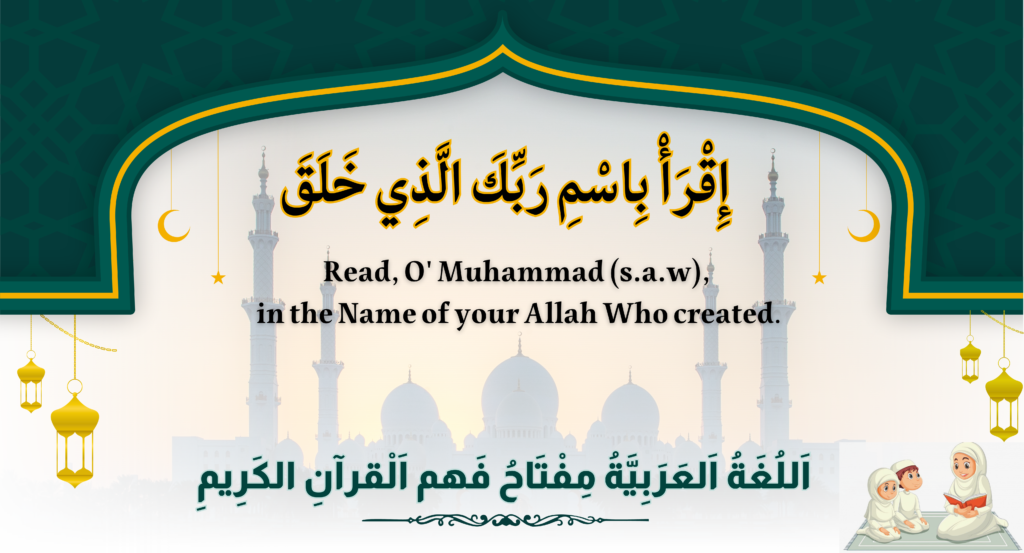In Islam, fasting known as sawm, Arabic: صوم Arabic pronunciation sawm or siyam, Arabic صيام Arabic pronunciation siyam, also commonly known as rūzeh or rōzah (Persian: روزه) in non-Arab Muslim countries is the practice of abstaining, usually from food, drink, smoking, and anything which substitutes food and drink. During the holy month of Ramadan, sawm is observed between dawn and nightfall when the adhan of the Maghrib prayer is sounded.
The month of Ramadan is the ninth month of the Islamic calendar, and is a period of fasting and spiritual growth and is one of the five “pillars of Islam” the others being the declaration of faith, daily prayer, alms-giving and the pilgrimage to Mecca and includes the night in which the holy Qur’an was first revealed to mankind, known as Laylat al-Qadr (the night of decree).
Many practicing Muslims also perform additional prayers, especially at night, and attempt to recite the entire Quran. The prevailing belief among Muslims is that it was in the final 10 nights of Ramadan that the Quran was first revealed to the Prophet Muhammad ﷺ

يَا أَيُّهَا الَّذِينَ آمَنُوا كُتِبَ عَلَيْكُمُ الصِّيَامُ كَمَا كُتِبَ عَلَى الَّذِينَ مِن قَبْلِكُمْ لَعَلَّكُمْ تَتَّقُونَ
O you who have believed, decreed upon you is fasting as it was decreed upon those before you that you may become righteous
Surah-al-Baqrqh 143
أَيَّامًا مَّعْدُودَاتٍ فَمَن كَانَ مِنكُم مَّرِيضًا أَوْ عَلَىٰ سَفَرٍ فَعِدَّةٌ مِّنْ أَيَّامٍ أُخَرَ وَعَلَى الَّذِينَ يُطِيقُونَهُ فِدْيَةٌ طَعَامُ مِسْكِينٍ فَمَن تَطَوَّعَ خَيْرًا فَهُوَ خَيْرٌ لَّهُ وَأَن تَصُومُوا خَيْرٌ لَّكُمْ إِن كُنتُمْ تَعْلَمُونَ
[Fasting for] a limited number of days. So whoever among you is ill or on a journey [during them] – then an equal number of days [are to be made up]. And upon those who are able [to fast, but with hardship] – a ransom [as substitute] of feeding a poor person [each day]. And whoever volunteers excess – it is better for him. But to fast is best for you, if you only knew.
Surah-al-Baqrah 184
حَدَّثَنَا خَالِدُ بْنُ مَخْلَدٍ، حَدَّثَنَا سُلَيْمَانُ بْنُ بِلاَلٍ، قَالَ حَدَّثَنِي أَبُو حَازِمٍ، عَنْ سَهْلٍ ـ رضى الله عنه ـ عَنِ النَّبِيِّ صلى الله عليه وسلم قَالَ “ إِنَّ فِي الْجَنَّةِ بَابًا يُقَالُ لَهُ الرَّيَّانُ، يَدْخُلُ مِنْهُ الصَّائِمُونَ يَوْمَ الْقِيَامَةِ، لاَ يَدْخُلُ مِنْهُ أَحَدٌ غَيْرُهُمْ يُقَالُ أَيْنَ الصَّائِمُونَ فَيَقُومُونَ، لاَ يَدْخُلُ مِنْهُ أَحَدٌ غَيْرُهُمْ، فَإِذَا دَخَلُوا أُغْلِقَ، فَلَمْ يَدْخُلْ مِنْهُ أَحَدٌ ”.
Narrated Sahl:
The Prophet (ﷺ) said, “There is a gate in Paradise called Ar-Raiyan, and those who observe fasts will enter through it on the Day of Resurrection and none except them will enter through it. It will be said, ‘Where are those who used to observe fasts?’ They will get up, and none except them will enter through it. After their entry the gate will be closed and nobody will enter through it.”
حَدَّثَنَا قُتَيْبَةُ، حَدَّثَنَا إِسْمَاعِيلُ بْنُ جَعْفَرٍ، عَنْ أَبِي سُهَيْلٍ، عَنْ أَبِيهِ، عَنْ أَبِي هُرَيْرَةَ ـ رضى الله عنه أَنَّ رَسُولَ اللَّهِ صلى الله عليه وسلم قَالَ “ إِذَا جَاءَ رَمَضَانُ فُتِحَتْ أَبْوَابُ الْجَنَّةِ ”.
Narrated Abu Huraira:
Allah’s Messenger (ﷺ) said, “When Ramadan begins, the gates of Paradise are opened.”
حَدَّثَنَا يَحْيَى بْنُ بُكَيْرٍ، قَالَ حَدَّثَنِي اللَّيْثُ، عَنْ عُقَيْلٍ، عَنِ ابْنِ شِهَابٍ، قَالَ أَخْبَرَنِي سَالِمٌ، أَنَّ ابْنَ عُمَرَ ـ رضى الله عنهما ـ قَالَ سَمِعْتُ رَسُولَ اللَّهِ صلى الله عليه وسلم يَقُولُ “ إِذَا رَأَيْتُمُوهُ فَصُومُوا، وَإِذَا رَأَيْتُمُوهُ فَأَفْطِرُوا، فَإِنْ غُمَّ عَلَيْكُمْ فَاقْدُرُوا لَهُ ”. وَقَالَ غَيْرُهُ عَنِ اللَّيْثِ حَدَّثَنِي عُقَيْلٌ وَيُونُسُ لِهِلاَلِ رَمَضَانَ.
Narrated Ibn `Umar:
I heard Allah’s Messenger (ﷺ) saying, “When you see the crescent (of the month of Ramadan), start fasting, and when you see the crescent (of the month of Shawwal), stop fasting; and if the sky is overcast (and you can’t see it) then regard the month of Ramadan as of 30 days.”
Sahih al-Bukhari 1900
حَدَّثَنَا مُسْلِمُ بْنُ إِبْرَاهِيمَ، حَدَّثَنَا هِشَامٌ، حَدَّثَنَا يَحْيَى، عَنْ أَبِي سَلَمَةَ، عَنْ أَبِي هُرَيْرَةَ ـ رضى الله عنه ـ عَنِ النَّبِيِّ صلى الله عليه وسلم قَالَ “ مَنْ قَامَ لَيْلَةَ الْقَدْرِ إِيمَانًا وَاحْتِسَابًا غُفِرَ لَهُ مَا تَقَدَّمَ مِنْ ذَنْبِهِ، وَمَنْ صَامَ رَمَضَانَ إِيمَانًا وَاحْتِسَابًا غُفِرَ لَهُ مَا تَقَدَّمَ مِنْ ذَنْبِهِ ”.
Narrated Abu Huraira:
The Prophet (ﷺ) said, “Whoever established prayers on the night of Qadr out of sincere faith and hoping for a reward from Allah, then all his previous sins will be forgiven; and whoever fasts in the month of Ramadan out of sincere faith, and hoping for a reward from Allah, then all his previous sins will be forgiven.”
Sahih al-Bukhari 1901


